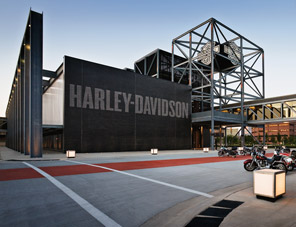Marquette took an active role in revitalizing its surrounding community with the creation of Near West Side Partners, Inc., a nonprofit founded last week.
Near West Side Partners is a collaborative effort of some of the area’s largest and most prominent businesses and civic groups, including anchor institutions Marquette University, Harley-Davidson, Aurora Healthcare, MillerCoors and Potawatomi Business Development. The Avenues West Association and Wiegand Enterprises are also involved.
NWSP’s work is intended to strengthen the neighborhood surrounding Marquette by focusing on economic development, improved housing, unified neighborhood identity and branding, in addition to greater safety for residents and businesses.
The executive director of the Avenues West Association, Keith Stanley, described the NWSP as a group of “committed stakeholders to help focus energy and coordinate positive efforts.” He referred to the organization’s role as “leading the charge in facilitating discussion.”
Milwaukee is mapped out by neighborhoods like the Third Ward, the East Side, Riverwest, the South Side or Walker’s Point. This coalition hopes that through its work, the Near West Side, identified as the area surrounded by I-43 on the east, I-94 on the south, Highway 41 on the west and Vliet Street and Highland Avenue to the north, will develop its own unique identity as a thriving, vibrant neighborhood like the others.
“I think this neighborhood has a lot of potential, and I also think the Marquette community has the potential to be more involved with our Milwaukee community,” said Nicolas Schmidt, a sophomore in the College of Engineering.
Since its inception at the New West Side CEO Symposium hosted by University President Michael Lovell in October, Marquette has been at the forefront of this mission.
“Dr. Lovell has shown tremendous support and guidance, and it’s exciting to have support from leadership at the top,” Stanley said.
Rana Altenburg, vice president for public affairs and president of the NWSP Board of Directors, expressed that Marquette’s involvement in NWSP is inherent in its Catholic, Jesuit identity that always seeks to engage in the community.
“It’s what being a good neighbor is all about, and to the extent we can lend support to improve our neighborhood, we are excited to do so,” Altenburg said.
One improvement NWSP hopes to make is the installment of a viable grocery store with fresh produce and meats. This is a deeply felt need by community members and students alike, as the neighborhoods located north and west of campus are labeled “food deserts” by the United States Department of Agriculture. It also hopes to attract more restaurants and businesses to the area.
The organization plans to carry out its mission by using working teams with both short and long-term goals. Altenburg confirmed these teams will do their best to value the voices and resources of the community members themselves, including employees, residents, students, visitors, businesses and nonprofits in the Near West Side.
“Working teams will work closely with all of these constituencies to establish open lines of communication about NWSP’s goals and progress,” Altenburg said.
Connor Morris, a junior in the College of Education, values that cooperation and said he hopes the NWSP will “collaborate with all of the different residents of the neighborhood to be able to develop a program that works for the interests of the community itself.”
The idea and work of NWSP is modeled after the existing Milwaukee’s Menomonee Valley Partners, Inc., which serves as a parallel example of a collaborative community development initiative in a nearby neighborhood.
Marquette University Student Government is involved in other efforts to revitalize the area surrounding campus by having representatives serve on the Neighborhood Excellence Committee that includes local landlords and developers. Courtney Guc, a sophomore in the College of Business Administration and MUSG representative on the committee, explained that its tasks include brainstorming ways to get businesses to come to the area and identifying kinds of safety initiatives that could be started.
Acknowledging its role as a member of the diverse Milwaukee community, Altenburg said she’s optimistic and enthusiastic about the prospects of this project and her leadership role within it.
“It will take everyone working together to achieve success,” Altenburg said.


